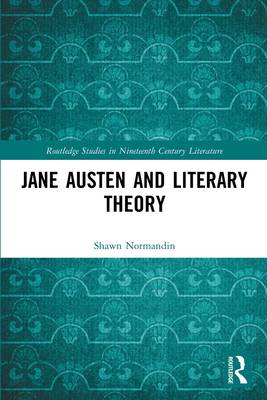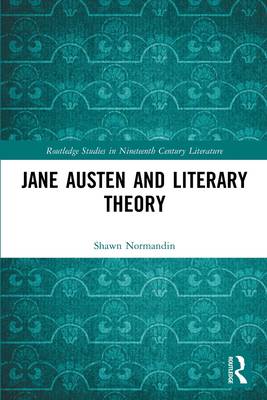
- Afhalen na 1 uur in een winkel met voorraad
- Gratis thuislevering in België vanaf € 30
- Ruim aanbod met 7 miljoen producten
- Afhalen na 1 uur in een winkel met voorraad
- Gratis thuislevering in België vanaf € 30
- Ruim aanbod met 7 miljoen producten
Omschrijving
Jane Austen was one of the most adventurous thinkers of the late eighteenth and early nineteenth centuries, but one would probably never guess that by reading her critics. Perhaps no canonical author in English literature has proven, until now, more resistant to theory. Tracing the political motives for this resistance, Jane Austen and Literary Theory proceeds to counteract it. The book's detailed interpretations guide readers through some of the important intellectual achievements of Austen's career-from the stunning teenage parodies "Evelyn" and "The History of England" to her most accomplished novels, Pride and Prejudice, Mansfield Park, and Emma. While criticism has largely been content to describe the various ways Austen was a product of her time, Jane Austen and Literary Theory reveals how she anticipated the ideas of formidable literary thinkers of the twentieth century, especially Jacques Derrida and Paul de Man. Gift and exchange, speech and writing, symbol and allegory, stable irony and Romantic irony-these are just a few of the binary oppositions her dazzling texts deconstruct. Although her novels are major achievements of nineteenth-century realism, critics have hitherto underestimated their rhetorical cunning and their fascination with the materiality of language. Doing justice to Austen's language requires critical methods as ruthless as her irony, and Jane Austen and Literary Theory supplies these methods. This book will enable both her devotees and her detractors to appreciate her genius in unusual ways.
Specificaties
Betrokkenen
- Auteur(s):
- Uitgeverij:
Inhoud
- Aantal bladzijden:
- 168
- Taal:
- Engels
- Reeks:
Eigenschappen
- Productcode (EAN):
- 9780367696450
- Verschijningsdatum:
- 26/09/2022
- Uitvoering:
- Paperback
- Formaat:
- Trade paperback (VS)
- Afmetingen:
- 152 mm x 229 mm
- Gewicht:
- 281 g

Alleen bij Standaard Boekhandel
Beoordelingen
We publiceren alleen reviews die voldoen aan de voorwaarden voor reviews. Bekijk onze voorwaarden voor reviews.











